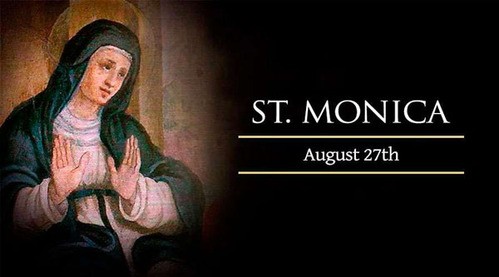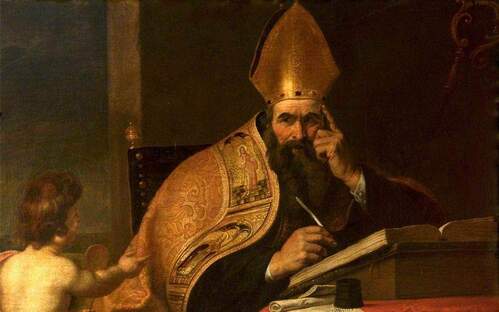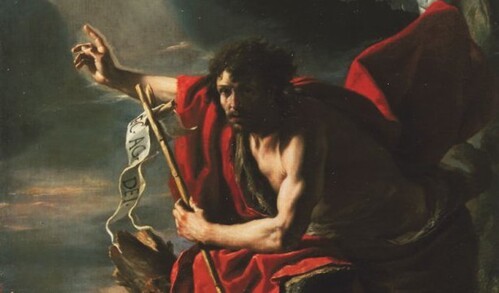this week's feasts
St. Monica

Wednesday, Aug. 27, is the feast of St. Monica, the mother of St. Augustine. His feast is the next day, Aug. 28. Monica lived in Northern Africa and was a devout Catholic. She was married to a pagan (probably an arranged marriage) who would not allow her to have his son, Augustine, baptized or raised a Catholic. He was verbally abusive to Monica, as was his mother, Monica’s mother-in-law. She constantly prayed for Augustine and was instrumental in his eventual conversion.
Monica is a patron saint of mothers whose children have fallen away from the practice of the faith or have drifted into sinful lifestyles.
Monica is a patron saint of mothers whose children have fallen away from the practice of the faith or have drifted into sinful lifestyles.
St. Augustine
Thursday, Aug. 28, is the feast of St. Augustine, one of the Fathers of the Church, the Doctors of the Church, and one of the two most important philosophers and theologians the Church has ever produced. As noted above, his pagan father would not allow him to be raised a Christian, so Augustine grew up as a pagan himself. He would eventually become a Manichean, which was a pagan religion of the time. Eventually he would move to Rome and met St. Ambrose, another Doctor of the Church, who guided him through his conversion and training in theology.
Augustine’s led a very licentious life before his conversion, which delayed his becoming a Christian, because he knew he would have to give up his sexual pursuits if he was baptized. His famous prayer in this regard was, “Lord, make me chaste, but not yet.” Soon after his baptism, he was ordained a priest, and then a bishop. He was appointed bishop of Hippo, in Northern Africa, and from there he battled against the heresies of his day and wrote his massive number of books. Scholars of St. Augustine state that anyone who claims that they have read all his writings is a liar.
Augustine’s led a very licentious life before his conversion, which delayed his becoming a Christian, because he knew he would have to give up his sexual pursuits if he was baptized. His famous prayer in this regard was, “Lord, make me chaste, but not yet.” Soon after his baptism, he was ordained a priest, and then a bishop. He was appointed bishop of Hippo, in Northern Africa, and from there he battled against the heresies of his day and wrote his massive number of books. Scholars of St. Augustine state that anyone who claims that they have read all his writings is a liar.

The Passion of St. John the Baptist

On Friday, Aug. 29, the Church honors the Passion, or the death, of St. John the Baptist. John’s entire life was preparation for the coming of Christ. The annunciation of his birth to Zechariah is preparation for the Annunciation of the birth of Jesus to Mary. His birth is preparation for the birth of Jesus. John’s ministry is preparation for the ministry of Jesus. And, as we celebrate his Passion, we recognize that John’s death is preparation for the death of Jesus.